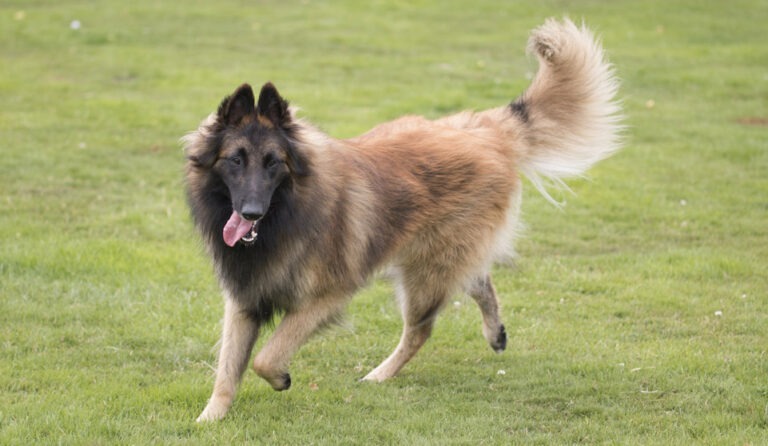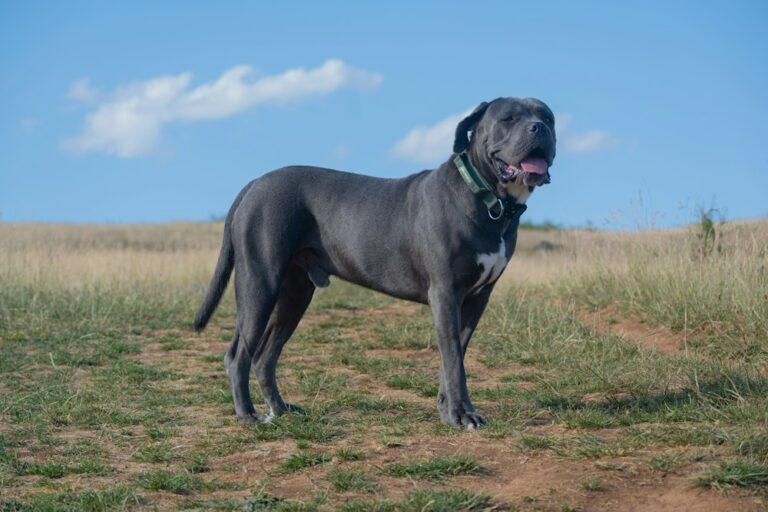Weimaraner is Known for their sleek silver-gray coat and striking amber eyes, this dog is not only aesthetically pleasing but also highly energetic and intelligent. Originally bred in Germany for hunting large game such as deer, Weimaraners have a natural instinct for tracking, pointing, and retrieving. In this dog breed guide, we will explore the various qualities and characteristics that make Weimaraners exceptional hunting companions. Whether you are an experienced hunter or a dog enthusiast, read on to discover why Weimaraners are the perfect choice for your next hunting adventure.
History of the Weimaraner breed
Origins of the Weimaraner
The Weimaraner, also known as the “Grey Ghost,” is a breed that originated in Germany. Its name is derived from the Grand Duke of Weimar, Charles Augustus, who played a crucial role in the breed’s development during the early 19th century. The exact origins of the Weimaraner are still a matter of debate among historians and dog enthusiasts.
However, it is widely believed that the Weimaraner descended from various hunting breeds, including the Bloodhound, English Pointer, and the German Shorthaired Pointer. These dogs were selectively bred to create a versatile hunting companion that excelled in tracking and retrieving game.
Development of the breed
The development of the Weimaraner breed can be traced back to the noble hunting traditions of the German aristocracy. The Grand Duke of Weimar, Charles Augustus, was an avid hunter and sought to create a breed that possessed exceptional hunting skills and a striking appearance.
To achieve this, the Grand Duke initiated a careful breeding program, crossing different breeds known for their hunting abilities. The Bloodhound was introduced to enhance the Weimaraner’s tracking skills, while the English Pointer contributed to its pointing abilities. The German Shorthaired Pointer also played a significant role in refining the breed’s hunting instincts and endurance.
Over time, the Weimaraner evolved into a breed renowned for its elegance, athleticism, and hunting prowess. Its distinctive silver-gray coat, amber or blue-gray eyes, and sleek muscular build made it a striking and recognizable breed. Initially, the Weimaraner was exclusively owned by the German nobility, and strict breeding guidelines were followed to maintain its distinct characteristics.
In the early 20th century, the Weimaraner was introduced to the United States, where it gained popularity among avid hunters and dog enthusiasts. The breed’s exceptional hunting skills and versatility made it a valuable companion for various types of game hunting.
Today, the Weimaraner continues to be cherished as a beloved family pet, as well as an impressive hunting dog. Its combination of elegance, energy, and intelligence makes it a breed that excels both in the field and in the home.
Characteristics and appearance
Physical attributes of Weimaraners
Weimaraners are a breed of hunting dogs known for their distinctive physical attributes. They are medium to large-sized dogs, typically weighing between 55-90 pounds and standing around 22-27 inches tall at the shoulder. Weimaraners have a sleek and muscular build, which contributes to their overall elegance and athleticism.
One of the most notable features of Weimaraners is their unique coat. They have short, smooth, and dense fur that comes in various shades of gray, ranging from silver to mouse gray. This sleek coat not only adds to their aesthetic appeal but also provides protection against harsh weather conditions during hunting expeditions.
Another physical attribute that sets Weimaraners apart is their striking eyes. Known as “Weimaraner amber” or “Weimaraner blue,” their eyes have a captivating and piercing gaze. The eye color often complements the shade of their coat, adding to their overall charm.
Temperament and behavior
Apart from their elegant appearance, Weimaraners are also renowned for their unique temperament and behavior. These dogs are highly energetic and require plenty of exercise and mental stimulation to thrive. They were originally bred as hunting companions, which explains their inherent drive and stamina.
Weimaraners are known for their loyalty and affection towards their families. They form strong bonds with their owners and are often referred to as “Velcro dogs” due to their tendency to stick close to their loved ones. They thrive on human companionship and may become anxious or develop behavioral issues if left alone for extended periods.
Along with their loyalty, Weimaraners also possess a strong prey drive. They have excellent instincts and are skilled hunters. This behavior can be channeled through various activities such as retrieving, scent work, or participating in dog sports like agility or obedience trials.
While Weimaraners are generally gentle and good-natured, they can be somewhat reserved with strangers. Early socialization and proper training are essential to ensure they grow up to be well-rounded and confident dogs. With the right guidance and care, Weimaraners make excellent companions for active individuals or families who can provide them with the physical and mental stimulation they crave.
In conclusion, Weimaraners possess both elegant characteristics and energetic behavior. Their physical attributes, including their sleek coat and captivating eyes, contribute to their overall grace. Additionally, their energetic temperament and hunting instincts make them a unique breed that requires an active and dedicated owner.
Training and Exercise Requirements
Importance of Early Socialization
Early socialization is crucial for Weimaraners to ensure they grow up to be well-rounded and well-behaved hunting dogs. Exposing them to various people, animals, and environments from a young age helps them develop confidence and adaptability. It also helps prevent fear-based aggression and anxiety issues later in life. Introducing them to different situations gradually and positively reinforces positive behaviors and reduces the likelihood of developing behavioral problems.
Training Methods for Weimaraners
Weimaraners are intelligent and eager to please, making them relatively easy to train. However, their independent nature can sometimes pose challenges. Positive reinforcement techniques, such as rewards, praise, and treats, work best with these hunting dogs. They respond well to consistency, patience, and clear communication. Using forceful methods or harsh corrections can be counterproductive and may lead to resistance or even aggression. Engaging in regular training sessions and incorporating mental stimulation activities will keep their minds sharp and maintain their focus.
Exercise Needs and Activities
Weimaraners are energetic dogs that require ample exercise to thrive both physically and mentally. A lack of exercise can lead to restlessness, anxiety, and destructive behavior. Aim for at least one hour of vigorous exercise every day to keep them happy and healthy. Activities such as running, hiking, playing fetch, and participating in dog sports like agility or obedience trials are ideal for fulfilling their exercise needs. Weimaraners also enjoy swimming, which is a great low-impact exercise that helps them cool down during hot weather. Remember to gradually increase their exercise intensity and duration to avoid overexertion or joint issues.
Weimaraners as Hunting Dogs
Weimaraners are renowned for their exceptional hunting abilities, making them a top choice for hunters and outdoor enthusiasts. Their natural instincts and athleticism make them the perfect companions for various hunting activities.
Natural Hunting Instincts
Weimaraners possess an innate drive for hunting, making them highly effective in the field. Their keen sense of smell, sharp sight, and exceptional tracking skills allow them to excel in tracking and flushing out game. With their instinctive hunting abilities, they can quickly adapt to different terrains and environments, making them versatile hunting partners.
Popular Hunting Activities
Weimaraners are well-suited for a range of hunting activities due to their energy and stamina. Here are a few popular hunting activities where Weimaraners shine:
- Upland Bird Hunting: Weimaraners are particularly skilled at upland bird hunting, such as pheasants and quails. Their agility, speed, and strong pointing instincts enable them to locate, flush, and retrieve game birds with remarkable efficiency.
- Waterfowl Hunting: With their webbed feet and water-resistant coat, Weimaraners excel in waterfowl hunting. They can retrieve ducks and geese from water bodies, thanks to their powerful swimming abilities and excellent retrieving skills.
- Tracking and Trailing: Weimaraners’ exceptional tracking abilities make them invaluable for tracking wounded game. Their determination and focus allow them to follow scent trails and locate injured animals, aiding in ethical and responsible hunting practices.
- Small Game Hunting: Weimaraners’ versatile hunting skills extend to small game hunting, including rabbits and squirrels. Their agility and speed make them adept at chasing and catching elusive small game, making for exciting hunting experiences.
Weimaraners’ elegant appearance, combined with their energetic and hunting-oriented nature, make them highly sought-after hunting dogs. Whether you are an avid hunter or a beginner, their natural hunting instincts and versatility in various hunting activities make them an excellent choice as your hunting companion.







